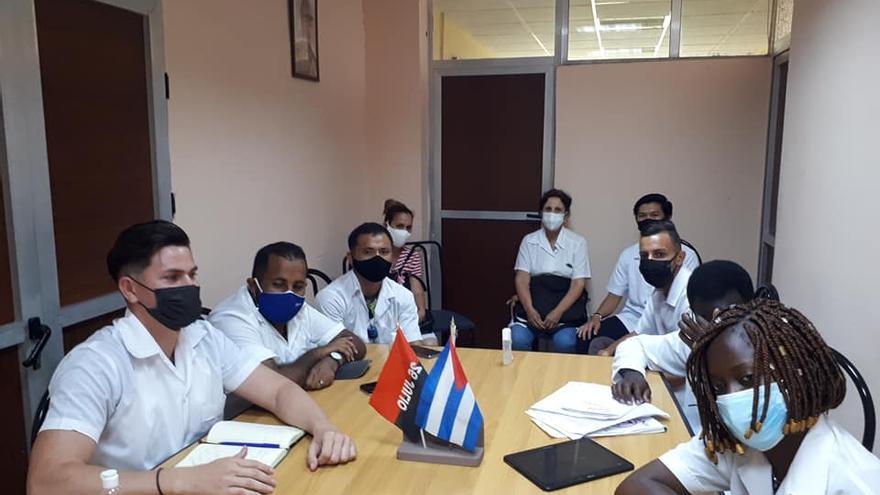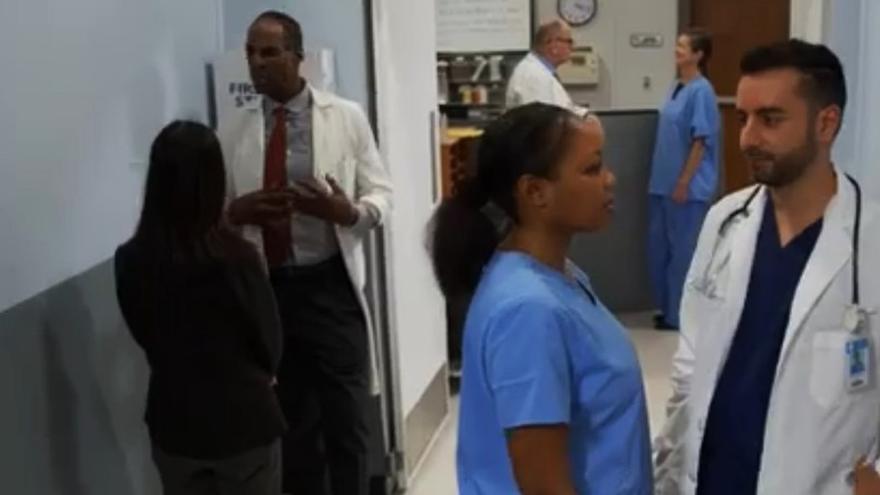
![]() 14ymedio, Havana, 20 September 2022 — The National Council of Science and Technology (CONACYT) will award 1,500 euros as “additional one-time support” to Mexican medical students who accept controversial scholarships to study a specialty in Cuba.
14ymedio, Havana, 20 September 2022 — The National Council of Science and Technology (CONACYT) will award 1,500 euros as “additional one-time support” to Mexican medical students who accept controversial scholarships to study a specialty in Cuba.
According to the report, which doesn’t specify the number of beneficiaries, the support is to encourage “permanence in their academic programs,” given desertions and refusals to agree to study on the Island. The money will be deposited with the Banco Popular de Ahorro, which is the Cuban entity that manages these scholarships from the Mexican Government.
In the first year of the program, which began in 2020, of 1,600 spaces planned to study a specialty in Cuba, only 172 were filled. For these residents, the Government of Mexico gave $1,501,766 to Cuba. The transaction was made by CONACYT to the Comercializadora de Servicios Médicos Cubanos, S.A., the Cuban company that has been accused on countless occasions of promoting “human trafficking and forced labor.”
A graduate of medicine at the Autonomous University of Mexico, Luz Elena Rodríguez, rules out traveling to the Island to study a specialty in pulmonology. “I’m not convinced by the curriculum, and because of the experiences shared with me by some Mexican doctors who have been to Cuba, I prefer to do the specialty in Mexico.”
Rodríguez told 14ymedio that the theoretical part “is acceptable, but in practice it appears to be elementary” in hospitals. “Last year a friend applied for a scholarship abroad, but the only option was Cuba,” she says.

She also says that what ended up discouraging her friend were several reports that began to come out, in which “the shortage of medicines and the lack of supplies were denounced.” That isn’t frightening, she says, because “in Mexico it exists in rural areas, but why go to another country, if the conditions here seem to be much better to continue specializing?”
There is total secrecy about the second generation of scholarship students on the Island who were selected last January, which suggests that perhaps, again, the call for students is once again received tepidly.
In a March post on his social networks, the consultant for health issues, Xavier Tello, pointed out that “out of the 995 places for medical residences that CONACYT conjured up, only five were occupied.” Because of this disinterest, “doctors are now accused of being selfish and only wanting scholarships in the United Kingdom, the United States and Germany.”
In addition to the controversial scholarship program, the Government of Mexico hired 641 Cuban doctors to serve in marginalized areas. These supposed health workers were denounced by the president of the Prisoners Defenders association, Javier Larrondo, who said that they didn’t have any specialty and that among the group were State Security agents.
Translated by Regina Anavy
____________
COLLABORATE WITH OUR WORK: The 14ymedio team is committed to practicing serious journalism that reflects Cuba’s reality in all its depth. Thank you for joining us on this long journey. We invite you to continue supporting us by becoming a member of 14ymedio now. Together we can continue transforming journalism in Cuba.
